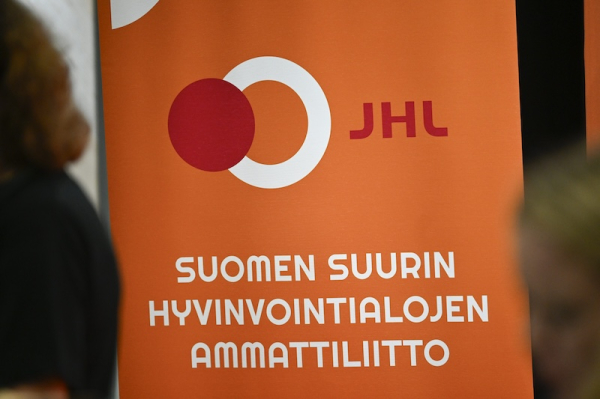
Trade Union JHL announces a new handling blockade in support of the Industrial Union. LEHTIKUVA
- Previous Article Finnish housing prices set to rise, but investors stay cautious
- Next Article Finnair pilots reject third proposal for new terms of employment
The Trade Union for the Public and Welfare Sectors (JHL) will launch a new handling blockade on 17 February to support industrial employees in their ongoing pay negotiations. The action will continue until 21 February unless an agreement is reached earlier.
This is the fourth handling blockade organised by JHL in solidarity with the Industrial Union. Previous blockades have taken place weekly since late January.
Håkan Ekström, JHL president, said that wage increases are necessary to keep up with rising costs.
“Inflation has surged in recent years, causing wages to fall behind. On top of that, the government’s harsh austerity measures have hit many workers. Pay rises are needed to restore employees’ purchasing power,” he said.
The handling blockade is a legal form of industrial action. It applies to cargo handling at ports and rail transport operations involving companies targeted by the Industrial Union’s strike warnings. Employees will refuse to load or unload goods from these companies, and transport workers may decline to move their cargo.
The action affects companies across multiple sectors, including metal, manufacturing, and logistics. Companies impacted include Boliden Harjavalta, Outokumpu Stainless, SSAB Europe, and Valtra. The blockade also applies to goods from Meyer Turku, Ponsse, and Wärtsilä Finland in all Finnish ports and related services.
In addition to JHL, several other unions are backing industrial employees. These include the Finnish Transport Workers’ Union (AKT), the Finnish Seafarers’ Union, Service Union United (PAM), the Finnish Construction Trade Union, and the Finnish Electrical Workers’ Union.
HT
- Previous Article Finnish housing prices set to rise, but investors stay cautious
- Next Article Finnair pilots reject third proposal for new terms of employment
Source: www.helsinkitimes.fi
